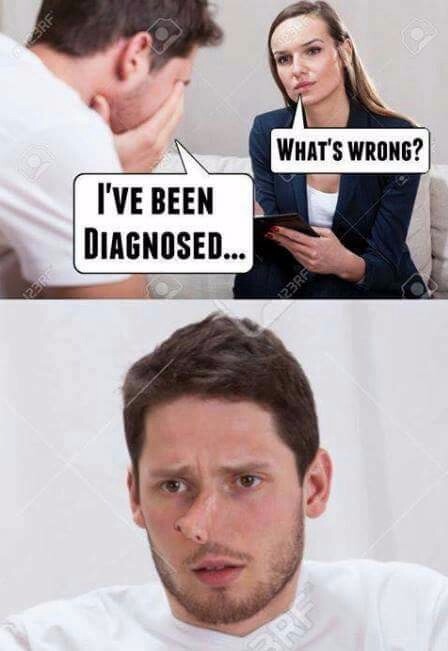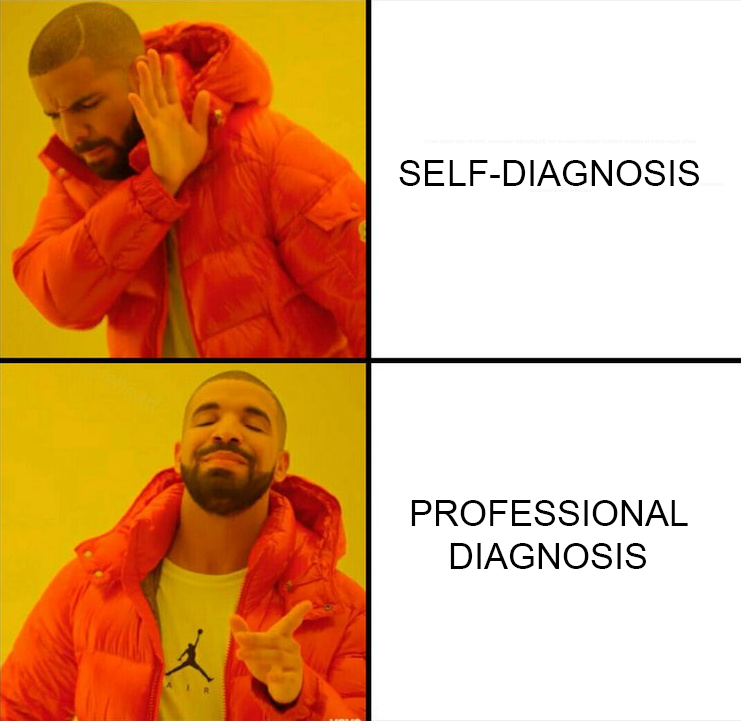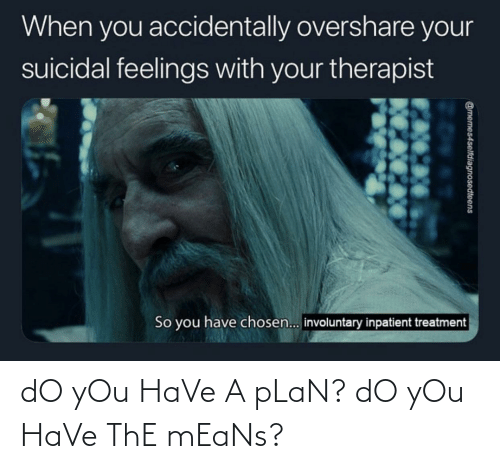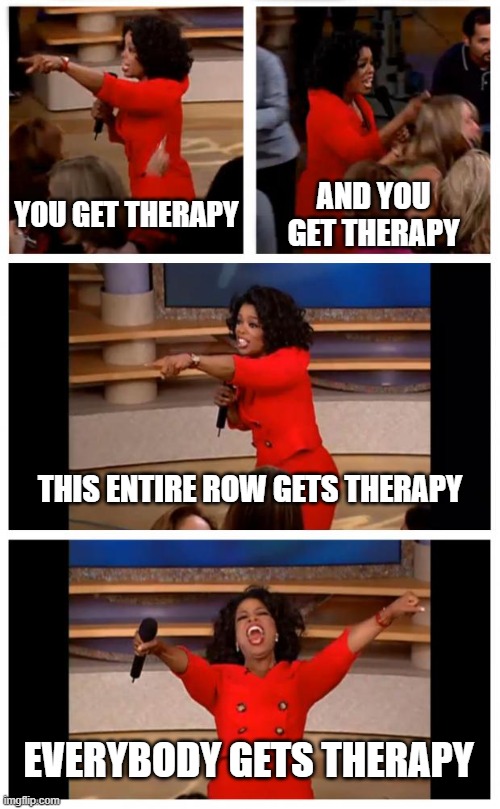5 things M’sians get wrong about mental health treatment, revealed by psychologists.

- 1.3KShares
- Facebook1.2K
- Twitter7
- LinkedIn5
- Email9
- WhatsApp18
This article is co-written by Ivory Anne.
Talking about your problems isn’t easy, especially when it comes to opening up to your friends and family. So, when you’ve finally gathered the courage to talk about your feelings, some of the worst things a person could say are
- “You crazy meh?”
- “It’s all in your head?”
- “OMG just don’t be depressed lah!”
- “Don’t worry, be happy! uwu“

Unfortunately, some people’s image of mental health treatment is one where the patient is wearing a straitjacket and getting flanked by two guards while a psychologist in a white coat asks them a series of questions. In other words, many people only think of Tanjung Rambutan when someone mentions mental health treatment (which is actually quite misleading in itself).
So, in order to find out whether these “facts” are indeed factual or just pure speculation, two of our Cili-interns talked to three qualified psychologists from local mental health clinics: Dr Joel Low from The Mind, Dr Chua Sook Ning from Relate, and Cathie Wu from Abri Mental Health.
Fake “Fact” 1: Psychologists can magically fix you.

memestodiscussintherapy
One common misconception that people have about therapy is that they think it’s just like a visit to a general practitioner when you’re sick; you go for treatment, you take the pills, you’re all cured and ready to go again. However, therapy is actually a lot more active than that and requires more effort on the client’s part.
When asked about her frustration as a counselling psychologist, Cathie Wu expressed that sometimes clients expect to be told the “right things” and thus improve when in reality, therapy is an active treatment process. The clients have to be willing to participate in their own recovery if they want to improve.
“Therapy is a 50/50 deal. Psychologists are like a GPS—we can show you the direction but ultimately you have to drive the car to reach the destination.” — Dr Joel Low, to CILISOS
Side note: psychologists are not psychics— they can’t read your mind and hypnotise you into making progress.

Fake “Fact” 2: You need to have a mental illness before you can get treatment.

We often assume that the first thing psychologists will do when we go for treatment is to make us fill out a million different questionnaires, to check if we have any form of clinical disorders. So, it was pretty shocking when we found out that some psychologists actually prefer not to diagnose their clients unless absolutely necessary.
“I think working with the patients to process their emotions and find out the underlying causes are much more efficient and helpful than instantly diagnosing them with any mental disorders. I believe that labels might hinder a patient’s recovery process because some of them might grow attached to the label and use it as a means to personify themselves.” — Dr Joel
But we’re not saying that getting a diagnosis is a bad idea. In contrast, Dr Chua highlights that having a diagnosis might actually help in affirming a client’s feelings by giving them a more tangible grasp on their emotions. On that note, she also advised the general public to not pass judgement too quickly on those who claim to be mentally ill despite not having a diagnosis.
“Sometimes, it could be a way for people to cry out for help. What we should do instead is to encourage that person to seek professional help, because that may be what they actually need.” — Dr Chua to CILISOS.

Fake “Fact” 3: Psychologists will tell your parents/partners.

The fear of having their personal information shared is a very common concern that often prevents people from seeking help. According to Dr Joel, your information will be kept private, even to your close friends and family, unless you explicitly state that you are comfortable with that information being shared.
“I will deny knowing a client because, just the act of confirming that a client is seeing me, would mean that the therapist has provided confirmation that the client is seeking mental health services.” — Dr Joel
However, there is one condition where confidentiality can be broken: when harm is involved. According to the APA’s (American Psychological Association) Code of Ethics, confidentiality can be broken only if there is a serious threat of violence or suicide determined by the mental health practitioner in threat analysis. This is where the practitioner will have to inquire on whether it is merely an idea or if they have an elaborate plan. And if they do have a plan, what their intentions are and if their plan is accessible.
“There needs to be evidence of a present danger, as confidentiality can only be broken if there is clear definitive harm to themselves or to others. If they do express a desire to cause harm: Is it a plan or just a thought?” — Dr Chua
If the mental health practitioner then believes that the client is at risk of serious harm, they will then contact the client’s emergency contact which is provided at the start of their sessions. However, involving the authorities is usually a last resort, and when that happens, the practitioner’s relationship with the client ends.
Fake “Fact” 4: Psychologists must treat EVERYONE.

Though mental health treatment is vastly different from going to a medical doctor, they do share certain similarities. For example, when you go to a general practitioner for a checkup, they may refer you to a specialist for further treatment. This is also the case for mental health treatment.
While talking to our interviewees, we found out that not all psychologists are trained to treat all kinds of people. This is because not all forms of therapy can be used to treat all types of clinical disorders. As a result, it is fairly common for therapists to redirect potential clients to other therapists which might better suit their needs.
“There are ethical codes that we have to adhere to. Due to our own limited resources (time schedule, case load, expertise, availability of materials, etc.), when a clinician cannot reasonably provide quality help to someone in need, we have the ethical duty not to take the case and instead to provide a referral.” — Cathie Wu, to CILISOS.
However, sometimes it isn’t just about the psychologist’s inability to treat someone. Dr Joel notes that before he agrees to accept a potential client, he does a quick assessment of them beforehand in order to determine whether they would be able to benefit from the therapy services provided, but also to find out if they were going for treatment against their will or if they could even be a potential threat.
“In my past experience, when someone goes to therapy against their will, what usually happens is that we end up just looking at each other for an hour without anything being said and no progress is made. Though I still get paid at the end of the day, I feel guilty because the person isn’t getting the services they’re paying for.” — Dr Joel
If the mental health practitioner then believes that the client is at risk of serious harm, they will then contact the client’s emergency contact which was provided at the start of their sessions.
Fake “Fact” 5: Mental health treatment is EXPENSIVE.

This “fact” is actually true to a certain extent. Therapy in private mental health clinics costs anywhere from RM200 to RM500+ for a 60-minute session. Conversely, going to a clinic costs around RM50 for a 15-minute consultation, and you might get a Medical Certificate (MC) and medication to take home.
Although therapy might seem overpriced in comparison to general practice, this is not an apple-to-apple comparison. Medical professionals can fix the roots of your problem by just giving you medicine whereas clinical psychologists will have to focus on giving clients a long-term personalised assessment on issues that are less obvious.
Additionally, a person doesn’t become a licensed psychologist overnight. All three psychologists expressed that the high fees are actually an acknowledgement of the number of training therapists have to go through. Psychologists are constantly undergoing different courses and training to be able to help their clients better, so in a way, it is a win-win situation.
“Being a psychologist is time-consuming and tedious work. Another reason why therapy is expensive is that there are currently no subsidies or coverage for one to receive psychotherapy treatments—a serious policy flaw contributing to this problem.” — Cathie Wu.
In fact, even therapists go to therapy and pay the same amount as clients. This just proves that therapy is actually a good value service and not exclusively for sot people.
But what if you can’t afford treatment?

Despite valid reasons for therapy being so expensive, many mental health practitioners do offer more affordable options for those who are not financially capable, which is especially important during these financially-turbulent times.
With that being said, both RELATE Malaysia and The Mind have affordable options and alternatives for mental health treatment and psychotherapy. The NURTURE Program is part of The Mind’s efforts in giving back to society, by offering affordable therapy sessions with their interns at a flat rate of RM150 per hourly session.
RELATE Malaysia also offers subsidized therapy options for Malaysian individuals at just RM45 for a 50-minute session with an intern, and RM150 for a 50-minute session with a professional (only available online).
If you're looking for other mental health treatment options, click here!
- 1.3KShares
- Facebook1.2K
- Twitter7
- LinkedIn5
- Email9
- WhatsApp18



